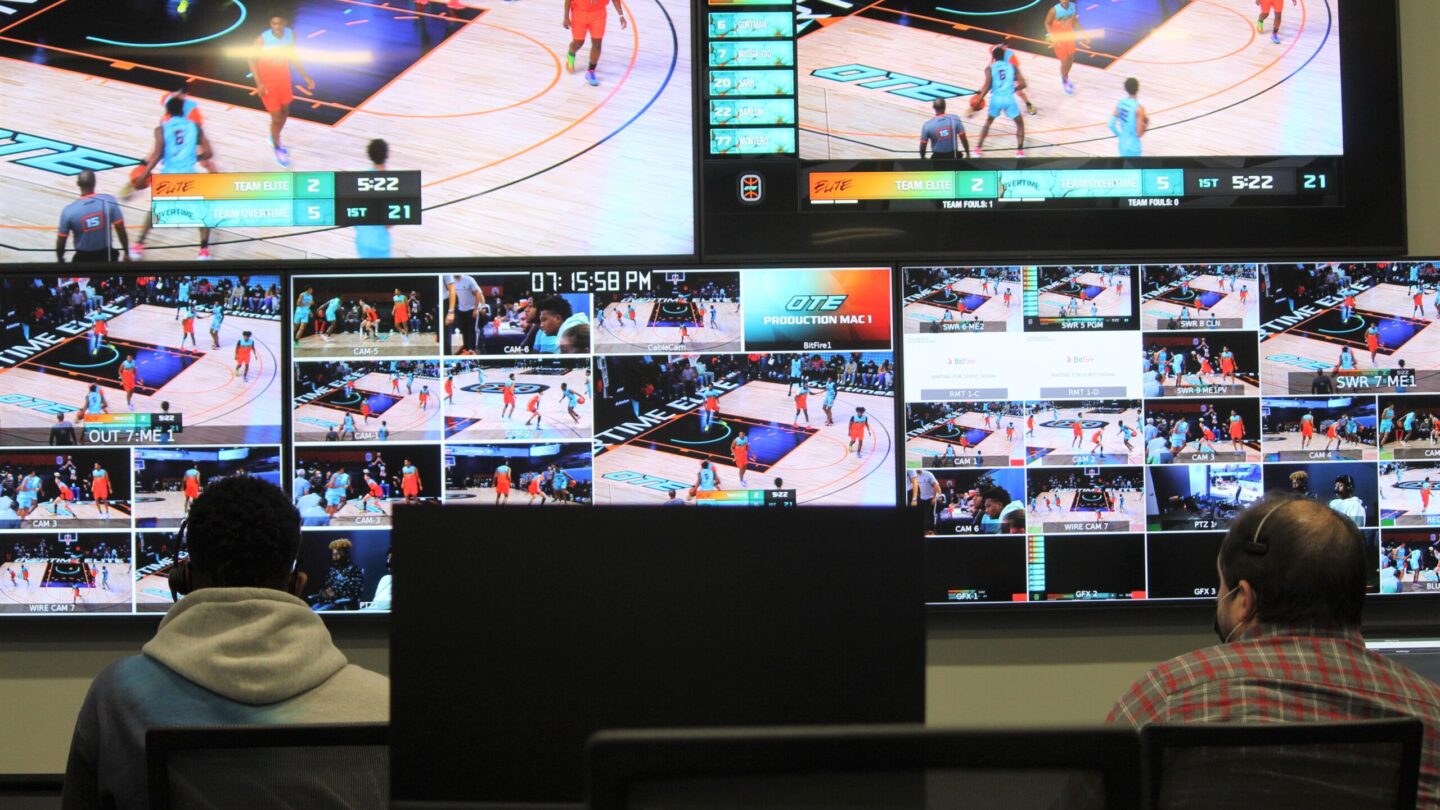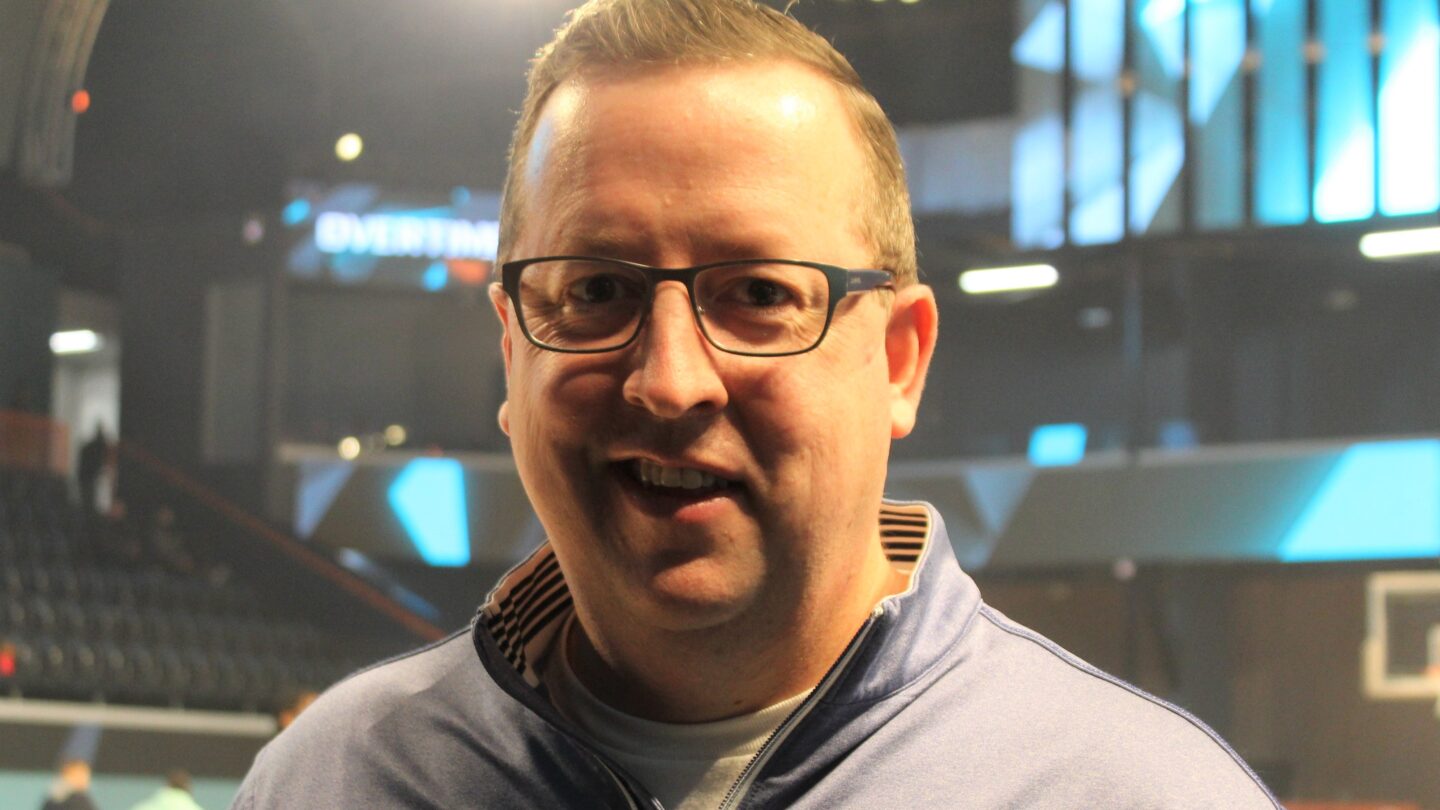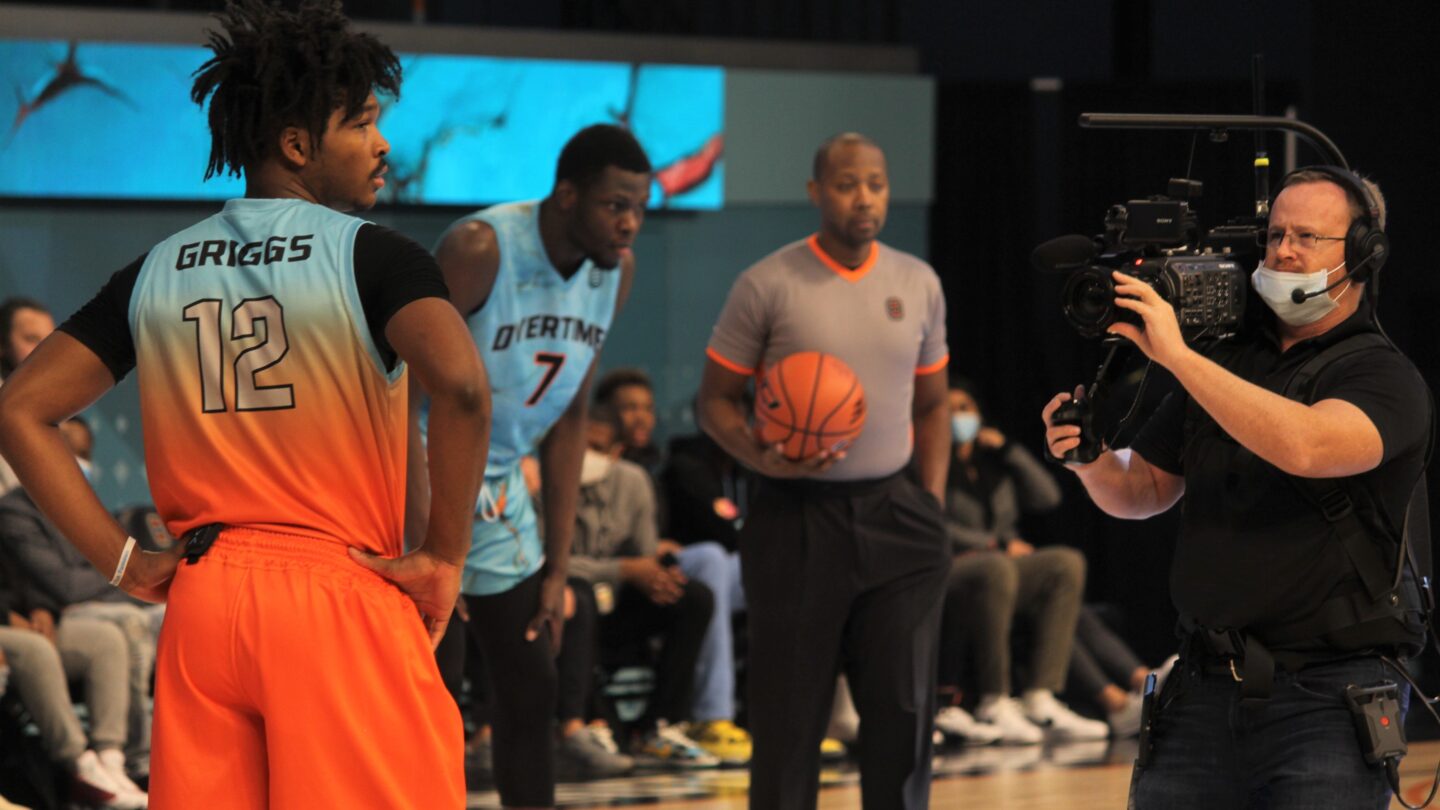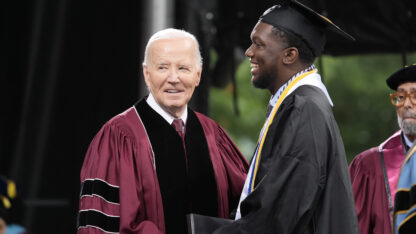In its first season in Atlanta, basketball startup sees itself as a disruptor, in more ways than one

Inside the Overtime Elite arena at Atlantic Station, smoke and strobe lights fill the air as a public address announcer introduces the teams.
In a room just off to the side, things are a bit quieter, but almost as intense.
“So we’re here in the broadcast control room,” said Overtime’s head of production and technology, Matt Montemayor. “And this is where really all the action takes place during a game for our broadcast.”
Inside the room, a few rows of seats face a bay of TV monitors. The technical director, several producers, graphics editors and an audio engineer have their eyes glued to the action.
“On the front wall in front of you you see the multi-viewer,” said Montemayor. “All of the different camera feeds coming in and graphics feed all come into this wall so that our technical director has access to all of it and can mix it all together.”
There are nine cameras stationed throughout the arena, including three on the sidelines for up close views. The building has a made-for-TV lighting system, usually only found in NBA arenas.
Strategically placed microphones pick up the swoosh of the net as the ball goes through and the squeaking of shoes as players pivot up and down the court.
There’s even an overhead camera that zips along a cable suspended above the floor.
“You might see a camera like that in other places, but our situation is a little bit unique; we don’t have the same sort of rules and restrictions that an NBA team might have. We can fly directly over the court,” Montemayor said.

Overtime, a Brooklyn-based company, began as a social media brand, highlighting up-and-coming basketball prospects.
It attracted attention and funding from a number of NBA stars and entrepreneurs, and last fall began its own developmental basketball league in Atlanta recruiting two dozen top phenoms from around the world.
The start-up made a splash when it announced its players would earn six-figure salaries as teenagers. The league wraps up its first season this week.
But Overtime is not only attempting to change the way prospects get to the NBA, it’s also trying to remake how we watch sports.
‘Only a quick swipe away’
Marc Kohn, the league’s chief content officer, says Overtime wants to produce not only basketball’s next big star, but broadcasts that appeal to a younger demographic. One way to do that is by hiring social media influencers instead of play-by-play announcers.
“We’re not going for Al Michaels or Brent Musberger or Mike Tirico to call the game, we’re looking to do something different,” said Kohn.
That something different includes leaving in only the good stuff — taking out timeouts and play stoppages.
“Instead of going out and producing live games, what we’re doing is, were kind of, what I call, ‘taking the air out of these games,’ and we’re being able to condense them down into 45- to 65-minute games,” Kohn said.
In addition to featuring the condensed games on YouTube, a production team pulls even shorter highlights to post to TikTok, Instagram and Twitter during the game.

“The competition is out there and it’s only a quick swipe away,” said Kohn. “If you don’t keep people’s attention every three seconds you’re gonna lose them. So you have no choice but to re-invent how you’re going to broadcast and distribute a game.”
The league doesn’t have a TV deal, but it does have a loyal following on social media and sizeable numbers of likes and views.
That can result in extra attention for the players from pro scouts, and revenue for the company.
It can also be a model for sports broadcasts of the future in an age when many younger fans don’t watch cable TV and usually won’t sit through a whole game.
“That’s that coveted audience that all the leagues are looking to figure out how they watch live games,” said Kohn.








